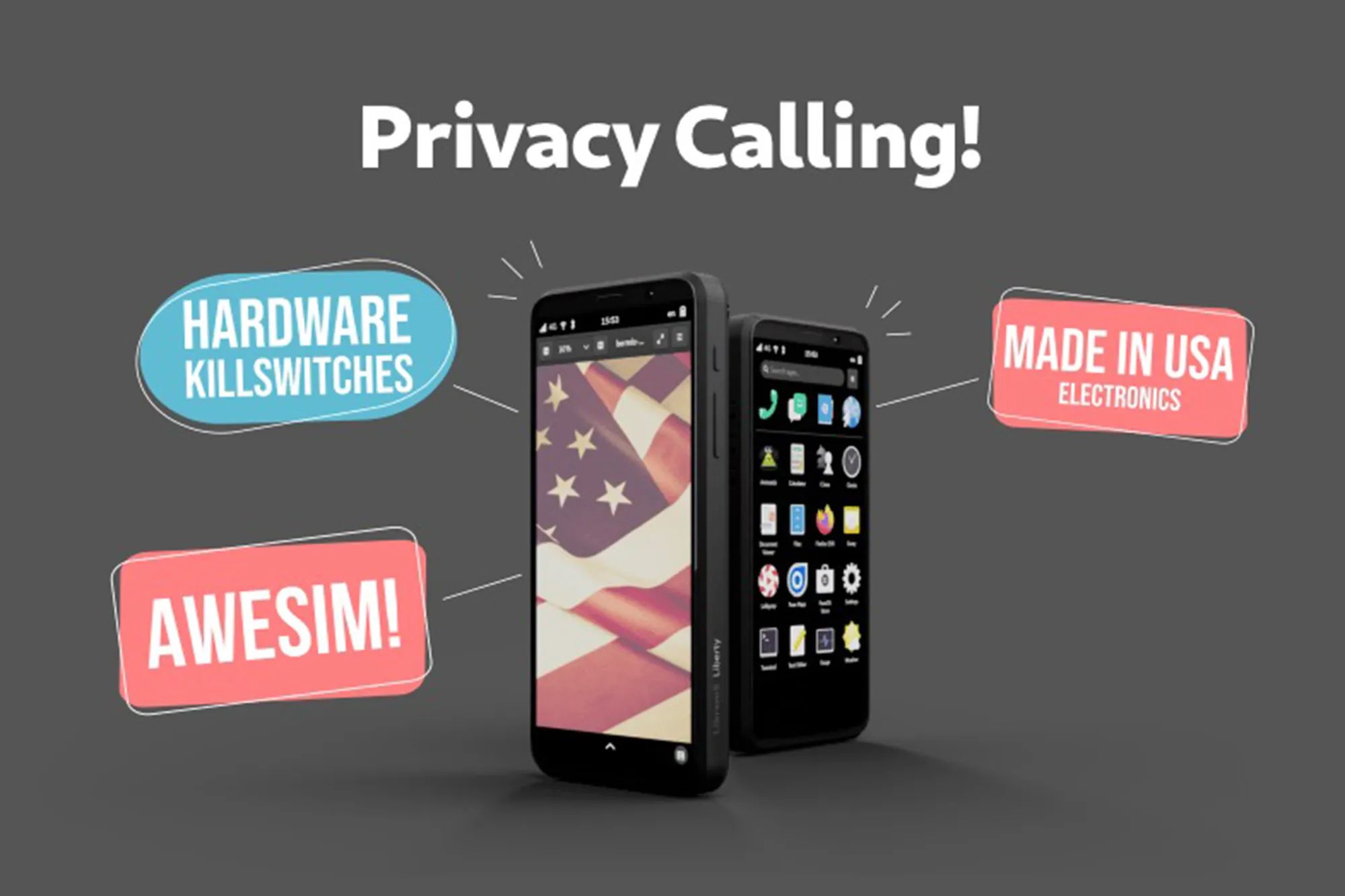A California -based company has come out with a smartphone that is almost completely manufactured in the United States, although it uses obsolete parts and its technology cannot compete with the iPhone, and it costs $ 2,000.
Liberty’s telephone focused on the privacy of the purism of technological start gatherings, tests and is sent to the United States, with its printed circuit plate (PCB) also manufactured nationally.
The development of software, including the Pureos operating system, is managed entirely in the United States. The baseboard, which is the central circuit plate that allows communication between all the main components and the modules of the key circuit plate are manufactured nationally.
However, key components such as chassis, camera, modem and Wi -Fi/BT modules come from foreign suppliers, mainly in China and India. The screen and battery are imported from China while the camera is made in South Korea.
“I have been working on this for ten years and we have done our best to build from the manufacture of the United States,” The Wall Street Journal Todd Weaver, founder and CEO of Purism, told The Wall Street.
The processor is manufactured by a Dutch company, while the chip itself could be manufactured in South Korea or elsewhere in Asia or Europe.
“There are some parts that do not yet have a supply chain. We will continue to increase until we can reach this point.”
The weaver, the assembly line of which consists of four people who load hands together, told the magazine that purism is capable of producing freedom phones at a rate of about 10,000 a month.
To date, he said that his company, founded in 2014, has sold less than 100,000. Weaver told NBC News that it took purism to six years of conceiving the phone as a vision to really produce it and sell it.
In comparison, it is said that the Apple Foxconn manufacturing partner is able to produce up to 500,000 iphones a day for maximum periods, which translates to 10,000 iphones per 12 minutes to maximum capacity.
Purism emphasizes its American manufacturing for critical security elements, while recognizing the global nature of its supply chain.
Although purism is not able to compete with technological behemoths about price and functions, its main sales launch is for conscious security consumers who do not want their data to be collected as Apple and Google.
The Liberty telephone executes Pureos, an operating operating system based on open source Linux. The device includes hardware switches that physically disconnect the microphone, camera, wi-fi, bluetooth and base band modem: virtually unheard of capabilities on main smartphones.
But Pureos allows the user to participate only in rudimentary functions, such as calling, texting, browsing web and using basic applications like a calculator, according to the newspaper.
Half of those who bought freedom are U.S. government workers who are attracted by the strictest security and privacy functions of the phone, according to the newspaper.
“Next to the consumer, they are security geeks, parents who want a phone for their child, the elderly or people who want to avoid great technologies,” says Weaver. “Someone who needs a wicked strong camera is not our audience.”
President Donald Trump has repeatedly pressured Apple and other important companies to move manufacturing to the United States, threatening a 25% rate to overseas iphones.
He has criticized Apple’s CEO, Tim Cook for extending production in India, and insists that the iPhones sold in the United States should be built nationally.
While Apple has invested in North -American Infrastructure and AI development, experts say that the relocation of complete iphone production in America would be prohibitively expensive and complex logistics.
Trump’s Trump Trump organization recently unveiled his own smartphone with Android called T1.
Although the phone is marketed as “manufactured in the US”, analysts believe that it is likely to be produced by a Chinese manufacturer with a minimum of the United States.
The business works as a license agreement, with a licensed Trump Branding at T1 Mobile LLC, aimed at conservative consumers looking for alternatives of American themes.
Apple usually sells tens of millions of iPhones each month, with exact figures that vary in the quarter and market conditions. From recent data, Apple sent approximately 151.3 million iPhones in the first nine months of 2024. This is about 16.8 million iphones per month during this period.
Google currently produces about 43,000-45,000 pixels per month in India, while its global shipments promise 766,000 monthly units based on data from the second quarter last year.
In comparison, Samsung produces around 20 million smartphones a month worldwide, with up to 5 million Galaxy S25 units made in the maximum launch months, such as in January 2025.
The Apple iPhone line ranges from $ 599 for the iPhone 16E to $ 1,399+ for iPhone 16 Pro Max, with popular models such as the iPhone 16 and 16 Pro price of $ 799 and 999, respectively.
The Google Pixel series starts from $ 499 for Pixel 9a and rises to $ 1,799 for Pixel 9 Pro Fold, while Pixel 9 and 9 standard proof cost $ 799 and 999.
Samsung Galaxy S25 models start around $ 799, increase $ 999 – $ 1,099 for S25 Plus and exceed $ 1,299 at $ 1,419 for S25 Ultra, depending on the retailer.
While most iphones are manufactured in China, Google pixels occur in Vietnam and China. Samsung Galaxy devices are mainly in South Korea, Vietnam and India.
The publication has sought comments from weaver and purism.
#Liberty #Phone #presents #USA #Electronics #costs
Image Source : nypost.com
